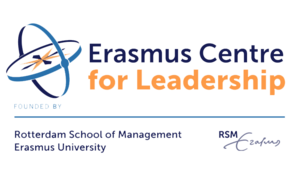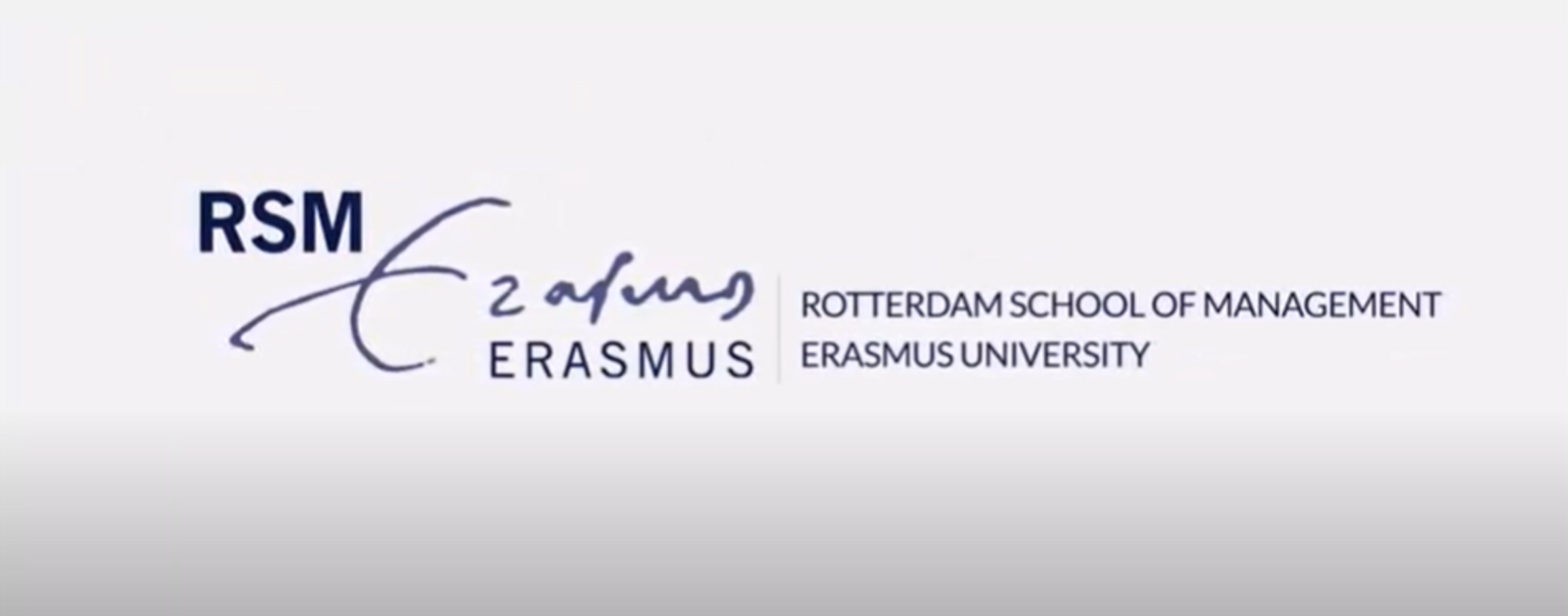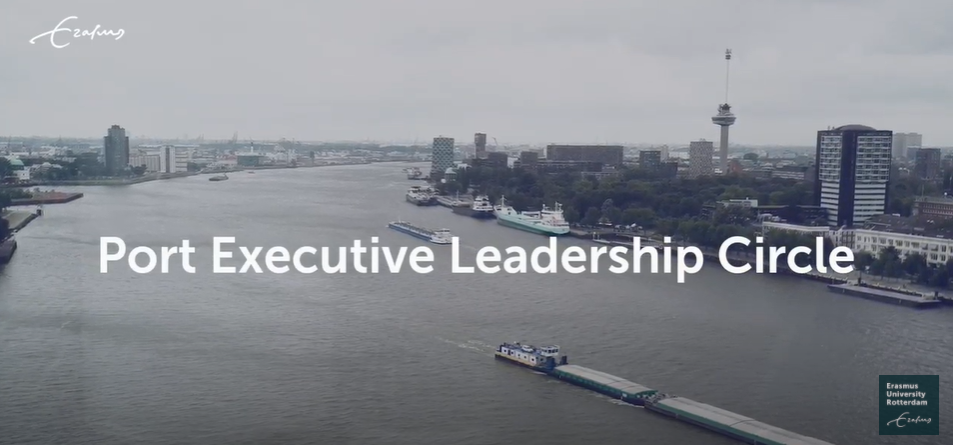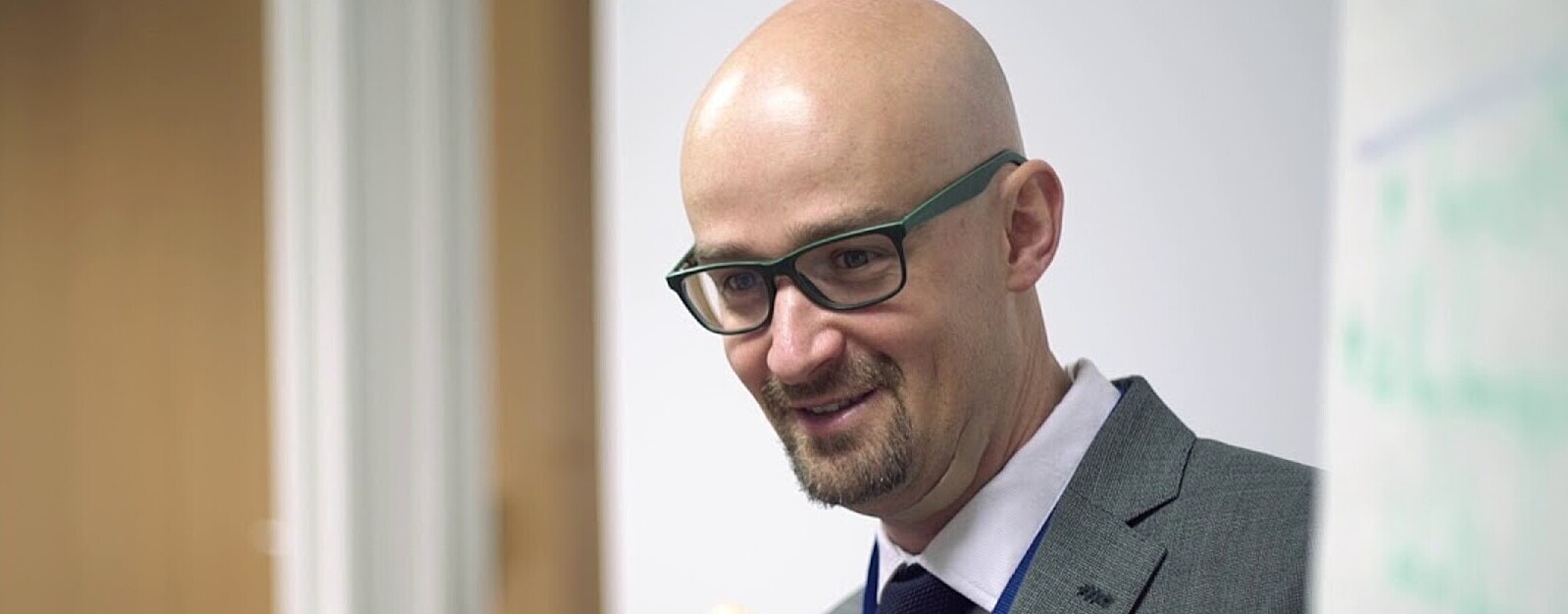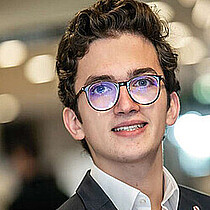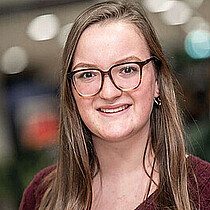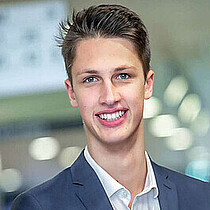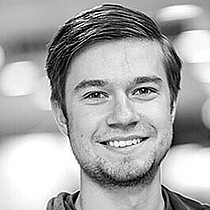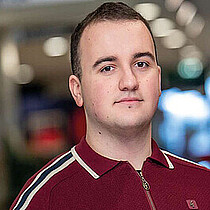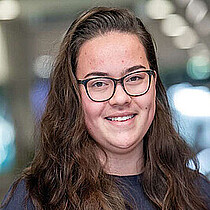Leadership has always been crucial to the effective functioning of society, and organisational performance depends in large part on the successful management of human capital. Throughout history, leadership has been vital to the fortune of companies and entire economies alike. Yet today we face an increasingly complex world that requires leaders to deal with what we call "wicked problems" - challenges that have so many variables invovled that it's not possible to solve them with natural-born charisma or talent.
Fortunately, at RSM we house more leadership experts per square meter than any other leading business school and use state-of-the-art management science facilities for both fundamental and applied research. While we investigate many different aspects of leadership we are all passionate about one thing: unravelling the mechanisms of effective leadership and leadership development.
Topics
The insecurity resulting from increasing rates of change can hit organisations by surprise. It can produce disruptions that challenge the status quo almost overnight.
Conditions like this call for strong leadership in every area of business and society, and leaders of organisations are increasingly expected to shape the future of their respective industries – and society as a whole.
We need strong business leaders
But rising demands can leave them feeling overwhelmed. Business leaders get burnout, feel like their careers have been derailed, and might be tempted into malfeasance and doing the wrong thing, not because they are bad people or even bad leaders, but because they were not trained for the type of big challenges that confront them.
What works and what doesn't?
We need to fix this training problem. Understandably, there are increasing numbers of providers offering leadership development programmes in response to this ‘leadership vacuum’. Many of them make use of innovative and experiential methods which are highly engaging and attract a lot of attention. However, there are very few guarantees that these programmes actually work.
In fact, existing research demonstrates that even though participants feel satisfied upon completing such a programme, they might not have actually learned that much.The result is an increasing disbelief – and even cynicism – towards leadership development.
That’s not a helpful outcome. So we are working hard to restore faith in leadership development by investigating scientifically what works and what doesn’t. If we know this, then we can set standards of excellence, and improve how leaders are trained and coached.
And rather than limiting ourselves to one specific model we look at leadership development from every angle.
An authentic leader is highly self-aware, meaning they understand their strengths and weaknesses. They act according to their core beliefs and values. There are lots of benefits to authentic leadership. It builds trust, increases transparency and psychological safety, and enhances everyone’s feeling of engagement with their work.
Too much authenticity?
At the same time, too much authenticity might jeopardise the outcomes of working relationships. In fact, studies have shown that ‘feeling authentic’ doesn’t mean that others see you as authentic. Quite the opposite.
Research at the Erasmus Centre for Leadership focuses on the outcomes of relationships that feature authentic leadership, and digs deep into understanding the factors that produce it. We look into mindfulness training and the effects of a climate of inclusion, as well as how individuals can develop a unique authentic self that brings feeling authentic and being perceived as authentic into unison.
Principle investigator is Dr Hannes Leroy, associate professor of human resource management. He is passionate about developing leaders to use their authentic self as a source of their leadership strength.
Leaders play a prominent role in determining whether or not there is ethical behaviour in their organisations.
There are broad leadership theories that acknowledge that a focus on ethics is a core component of leadership; they include theories of transformational leadership, servant leadership and authentic leadership, and they are researched by our fellow teams at the Erasmus Centre for Leadership.
What we focus on here is the topic of ethics, which links with the study of leader behaviour in other fields, such as in procedural justice.
Fairness and morality
Specifically, the enactment of procedures that ensure fair decision-making signals to employees that the organisation considers morality to be an important value. Research shows procedural fairness promotes co-operative and ethical behaviour in groups and organisations.
At the same time, some elements of the role of leadership tend to influence the leader’s psychological functioning. For example, having a lot of power may make leaders act in less ethical ways in some circumstances, but a lot of power can also make them act more ethically.
Power and immorality
Issues addressed in this part of the Erasmus Centre for Leadership include the immoral and moral behaviour stimulated by power, how members of an organisation cope with unfair leaders, and comparing the roles of intuitive and controlled processes in leadership ethics.
Principle investigator Prof. Marius van Dijke leads the team that researches the implications of these issues in theory and practice, and the kind of tools that encourage employees and leaders to function both productively and ethically.
Building a sense of ‘team’ or organisational identity is an important function of leadership; it develops a feeling of inclusion for everyone involved – the ‘we’ – in the organisation.
The kind of leadership that can build employees’ connection with this organisational identity is valuable for mobilising and motivating employees.
But some employees feel less commitment – as we see in some organisations now. If leaders can turn that feeling around by establishing connections to the organisation’s identity, then the firm gains an increasingly competitive advantage in business.
Using the identity function
An important aspect of the work in the Erasmus Centre for Leadership is developing our understanding of how leaders can build and use this identity function of leadership. There are two sides to this: first, how leaders represent and embody the identity of the organisation, and second, how leaders can shape how employees see the organisation.
Principle investigator Prof. Steffen Giessner researches at the intersection of organisational psychology and management, and leads a team that explores how to build the ‘we’ in an organisation.
Leading for innovation emphasises change rather than preservation, and focuses on a set of behaviours that differ from traditional leadership styles. This style of leadership includes an essential element; creativity.
It is distinguished from other types of leadership because it encompasses a variety of work environments and tasks. Traditionally, it was important in work settings in which managers led groups of creative experts – such as R&D environments and the creative industries.
Where innovation happens
But with the expansion of innovation into other parts of the organisation, this kind of leadership is found in other places too:
- Leaders for innovation can be found in production and manufacturing teams using lean production methods that emphasise continuous process innovation.
- They can be found in marketing teams actively scanning for new business opportunities.
- They lead business units
- And they sometimes lead entire organisations that need continuous improvement and bold innovation in order to thrive
Innovation leadership environments
Just as there are so many work environments that need leadership for innovation, leadership for innovation comes in a range of styles. Imagine leading an innovation team working exclusively on a continuous project to bring a series of new products to market – it’s completely different from leading a stable and permanent team that occasionally becomes involved in innovation.
Leadership for innovation was a ‘nice to have’, now it’s a ‘must-have’, and for companies to thrive, it’s important to understand the environment in which leadership for innovation is needed. In a sense, it’s the leadership paradigm of the future.
Creativity for the win
In a global IBM study, 1,500 CEOs showed they valued creativity as the most important aspect of leadership, yet even now, creativity and innovation restrict rather than facilitate management careers. Clearly there is a world to win in the area of leadership for innovation.
Our research is led by principle investigator Prof. Daan Stam, whose research interests include leadership and communication, in particular in innovation and operational settings.
Effective communication with customers is vital for an organisation’s performance in the marketplace. Companies interact with their customers via sales departments and contact centres. Leaders in sales and customer care are constantly challenged to manage their teams to become more productive and find ways to make more profit.
Three unique elements
There are at least three elements unique for leadership in sales and customer care.
- It’s for a large part about coaching agents how to behave in interpersonal interactions with other people, such as customers.
- With this interpersonal nature of the work, employees experience and cope with high levels of rejection from customers.
- Sales departments and contact centres often work with closely controlled performance evaluations, in terms of clearly defined KPIs, which raise employees’ concerns for failure.
This research programme aims to advance and test novel insights into how leaders can help employees overcome these challenges.
The research is led by principle investigator Bart Dietz, who conducts research on sales, sales leadership and HR.
There’s a demand for a more ethical, people-centred management, and servant leadership may well be what organisations need right now.
This 40-year old idea adds a moral component to leadership thinking, and is possibly more relevant than ever because company policies are increasingly reflecting society’s concerns. Giving attention to all stakeholders will be important for long-term profits.
‘Servant leadership’ is a term coined by Robert K. Greenleaf forty years ago, and explicitly emphasises the needs of followers. Although influence is generally considered to be the key element of leadership, servant leadership changes the focus of this influence by emphasising the idea of service within the leader-follower relationship, and the impact that an organisation has on society.
Research into servant leadership at the Erasmus Centre for Leadership further helps us to develop a general theoretical framework that incorporates the most important antecedents, underlying processes, and consequences.
But our explorations of servant leadership are not in isolation. We look at the implications of new knowledge about servant leadership for the way we train and coach business leaders, and on the huge subject of leadership development.
Principle investigator is Prof. Dirk van Dierendonck. Find out more about our research on servant leadership using the links below.
‘Office in a Small City’ by Edward Hopper, 1953, Metropolitan Museum of Art, New York City
Researchers and practitioners often talk of the importance of leadership in driving the well-being of employees. However, there is often less attention for the emotions and well-being of the leaders themselves. Is it because leaders enjoy higher levels of well-being, or does everyone take this assumption for granted?
In response to recent attention to the dark sides of leadership – such as abusive supervision, leader narcissism, and other undesirable uses of leaders’ power –teasing out the nuances in the emotional and well-being experiences of leadership is what interests researchers. It’s a focus that provides a human-centred perspective to existing leadership development approaches.
Is loneliness part of leadership?
Understanding the loneliness experience among leaders is a core research theme. Despite rising interest in this subject in practice, loneliness in leadership contexts has received little academic attention. The literature also sometimes assumes that leader loneliness is similar, if not equal, to general loneliness.
Leadership often involves directing teams, influencing strategic directions, and making high-pressure decisions in organisations, but moving beyond a generalised approach allows a focus on leadership-specific factors, such as leader power, leader-follower interactions, and in-role expectations that may all trigger loneliness at work. Besides this, what are the direct and indirect impacts on organisational functioning such as undesirable team behaviour or inhibited decision making – as well as the negative effects on leader functioning such as burnout, sleep deprivation, and loss of self-control?
What does the range of leader emotions mean to leaders?
The functions of leaders’ emotions are another route for research. The emotions of leaders affect their teams both automatically and consciously. On one hand, leaders’ emotions may spread positive and/or negative vibes to teams through daily interactions. On the other, leaders’ emotions may signal that an adjustment to the current way of working is necessary. For example, research has shown that leaders sometimes express anger to motivate team members. And there is a related question: how do leaders regulate their own, as well as their teams’ negative emotions, especially in times of change and crisis?
Our approach
To address these questions about loneliness, functions of emotions, and emotion regulation in leadership contexts, multiple methods include qualitative interviews, surveys, experiments, and interventions. Insights are published in practice-oriented platforms such as Forbes and The Wall Street Journal, and in public talks.
The research is led by Hodar Lam, a PhD candidate in organisational behaviour whose research focuses on emotions and well-being issues at work.
Watch the online lecture: ‘Understanding loneliness at work during COVID-19 and in the future’.

RSM strives to be a force for positive change. As a business school, its main agents are of course its students. At the ECL we are committed to provide leadership development that enables students from all backgrounds to become a force for positive change for themselves, their organizations and society as a whole. Across the school we are integrating educational efforts to align with the overall mission and values of the school, ensuring the highest level of quality and innovation.
This website provides an impression of some of our initiatives when it comes to leadership education.
Personal Leadership Development
In this video Dr. Hannes Leroy explains how at RSM we develop leaders who are a force for positive change.
Age Diversity Training
We have developed three training programmes to help organisations to manage age diversity among employees – both to avoid the problems it brings, and to bring out the advantages that age-diverse workforces confer on organisations. The training programmes came from our research and have been field-tested. Read more here
We facilitate leadership expeditions in which we take you out of your comfort zone and away from everyday luxuries and distractions. With expert guidance your mind can focus on what really matters: your authentic self.
We choose the locations carefully for the beauty and harshness of nature; these places evoke a new perspective of who you are as a person, and who you are as a leader. You will develop a deeper understanding of how your behaviour affects others, and you gain the ability to become a more effective leader.
In August 2018 we took a group of Executive MBA students on a leadership expedition to Hardangervidda National Park in Norway. In this video the students describe how this expedition has impacted their leadership identity.
The Port Executive Leadership Circle is a week-long intensive leadership programme targeting port executives from all over the world.
Unlike most leadership programmes, the Port Executive Leadership Circle uses cases that are contributed by the participants themselves. An academic approach is taken to these complex problems so that the participants can learn to understand them better in their totality and start to work on possible solutions.
Another thing that makes the programme special is the personalised development process. From the in-depth personal intake to the development of tailored study material based on the input of participants and the follow-up of individual leadership programmes later.
“You don’t just learn in the programme, you actively contribute by sharing your knowledge. In this way, we create an ongoing learning circle of people who are dedicated to changing the leadership in the port,” says Dr Hannes Leroy, academic director of Erasmus Centre for Leadership.
The Port Executive Leadership Circle is a joint initiative of Rotterdam School of Management, Erasmus University (RSM), Erasmus Centre for Urban, Port and Transport Economics and the Port of Rotterdam Authority.
Read more about the content of the study programme on RSM’s Executive Education website.
The transition from high school to university can be stressful and demotivating, and new students easily feel lost in a vast sea of anonymous faces. To guide our first-year bachelor students through the demanding first two blocks of their study we rely on our RSM Leadership Mentors. These mentors are second- and third-year students who have successfully settled into RSM, and know the ins and outs of the school and what it’s like to live in Rotterdam.
Tasks and responsibilities
Each RSM Leadership Mentor is assigned a group of 24 first-year students whom they coach, mentor and advise throughout the first four months of the academic year. In addition to traditional interaction in the classroom mentors also have one-on-one coaching sessions with each mentee and arrange a number of social activities within their groups.
Training
To become an RSM Leadership Mentor, each candidate must join an intensive four-day training at the end of the summer holidays to prepare them for the task ahead. During the training, participants gain a better understanding of the purpose, format and content of the mentoring programme. They will also learn the fundamentals of coaching theory and how to apply this in practice, as well as how to lead a group of first-year students.
Benefits for the mentor
Being an RSM Leadership Mentor is a challenging, but also rewarding experience. While it can be tough to give guidance to a group of first-year students, it also accelerates the personal leadership development of each mentor.
- The skills gained through the training and the hands-on experience will benefit our mentors far beyond their current role, and can give them a competitive edge on the labour market.
- Mentors expand their horizons and get to meet new people whom they otherwise might not interact with.
Selection
Student who are eligible to become an RSM Leadership Mentor will receive an email with information on the application procedure in the spring. After they apply, they go through a selection process including a team exercise and a personal interview with the selection committee.
What our RSM Leadership Mentors say:
“I’ve taught horseback riding since I was 16 years old. I like the interaction with the animals but it has also always interested me to find a teaching method that fits for each person. I applied right away when I saw I could became a mentor at RSM. The mentor training gave me the chance to develop my skills in helping others, become more confident, and widen my knowledge. I can apply these skills in other parts of life too. That’s what makes me happy!”
Timoryan de Vlieger, second-year BSc student
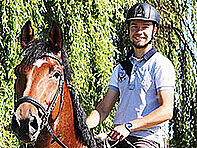
“The mentor training was an enriching experience. It was practical rather than purely theoretical, and all participants could learn from each other. My desire to become a mentor stems from two reasons. Two years ago, I started at a university in Italy and dropped out after four months because I felt insecure about my ability to pass any exam. There was no mentor who could explain to me that the first months at the university can be overwhelming and hard. I believe that such a person could have changed everything. So I want to transmit confidence to prevent anyone from feeling that he does not have what it takes to pursue an academic career. Secondly, I want to become a professor or a human resources specialist and guide people in acquiring confidence. So for me, this mentor programme is an enriching experience for personal and professional reasons. I cannot express my gratitude to RSM for giving its students such opportunities and care. I hope that at the end of the mentor programme, all my mentees will have the confidence needed to face the challenging world of university and to enjoy their new life.”
Giulia Falchi, second-year IBA student

“I remember my first day as a student, wandering around the Erasmus University campus. I had lived in the countryside in the far south of the Netherlands for nearly my entire youth, and now the world around me had changed radically. I was used to tripping over first graders at secondary school, and complete silence at night. It wasn’t easy to go from that world to being one out of a thousand students and having uncountable responsibilities. The mentor programme was absolutely vital for me. It gives new students a personal space within the huge university, where they can have their questions answered, their uncertainties explained, and make new friends. My personal experience inspired me to join the mentor programme. The training was informative, effective and most definitely worth spending a week of the summer on. My goal is to help the new students discover their own personal space, and to teach them how to deal with their changing worlds. I want to help them become good, responsible students who make the most out of the years that lie ahead of them. The mentor programme helped this farmer develop into a proper student. I am confident to help my students achieve the same.”
Rik de Paauw, second-year BSc student
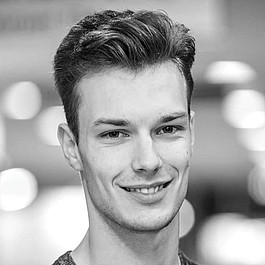
Despite good intentions, people often make poor decisions when it comes to well-being, either because they don’t know better or because they feel they have no choice. Not least, business leaders and managers are subject to unprecedented levels of stress, often leading to burnout, overall poor health and in the worst cases, derailing of their careers.
Have you ever considered sacrificing sleep to put in more hours at work? Many people have done this without being aware of the negative effects on productivity, performance, and even leadership.
We believe that knowing about stress and building resilience to it should be part of every leader’s development, so we have created a unique track for MBA participants at RSM. It uses the expertise of practitioners from mindfulness, nutrition, and sports science, and aims to provide MBA students with a holistic understanding of how factors such as sleep, exercise, diet and even relationships interact and affect mental and physical well-being.
This extracurricular course teaches the scientific basics of stress factors, and provide strategies for building a more balanced life, with the overall goal of increasing resilience to stress. Participants will learn a portfolio of practical exercises they can use every day, from mindfulness to meditation and exercise.
For more information about the MBA programmes at RSM, see www.rsm.nl/mba
What out students say:
“I think the Balance Track does exactly what it says. People usually underestimate the importance of balancing one’s sleep, a healthy diet, relationships, exercise and mindfulness – which are all tightly connected to each other. I only understood how vital and impactful my sleeping habit was after I got back to a healthy sleeping habit through the theoretical lessons and warm guidance in these sessions. Just fixing my sleep deprivation benefited me. It reduced my anxiety and loneliness and also boosted my energy and confidence. I strongly recommend people to attend this course; you will learn and benefit much more than the valuable time you spend in this session.”
Tserendorj Erdenechimeg, MBA 2020

“In an MBA, we touch upon a wide range of topics with the intention of developing the ability to see the bigger picture in business. The Balance Track, for me, is ‘an MBA in wellness’. I feel that the sessions better equipped me to face the challenges of maintaining emotional and physical health in a busy working life. I had the opportunity to try them during the MBA programme and I am surprised by the improvement I achieved. I have now a bird's eye view of the factors that come together to create or curse my physical and emotional wellbeing. This awareness has helped me away from many damaging habits that I already had – and some that I was about to pick up under the pressure of a tight schedule. Each session took place at a quiet location outside the campus, sometimes indoors, sometimes outside. We dived into important factors of wellness with activities guided by the trainers who were all specialists in their own fields. I feel grateful for the understanding I gained from the Balance Track.”
Amaresh Sahu, MBA 2020
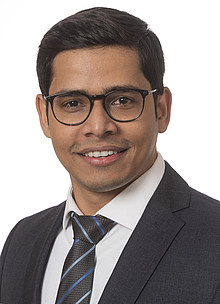
“The Balance Track delivered on every expectation. Every session was dedicated to a different topic that concerns either our mental or physical state of being: mindfulness, sleep, exercise, food, relationships and inspiration. These sessions were enlightening and encouraging; we explored the effects on our bodies and minds and learned tips and tricks for including them in our routines to positively influence our lives. Our progress was followed up regularly. Personally, I benefitted from their guidance immensely. The goal of these sessions was to improve the quality of our lives and make us more efficient and effective leaders and going through this programme has definitely made me more self-aware and confident in putting my best self forth to capture my full potential.”
Tracy Ann d’Souza, MBA 2020


Dr. Magdalena Cholakova
Entrepreneurship
T: +31 10 4089613
E: cholakova@rsm.nl
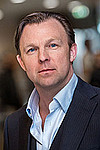
Prof. Dirk van Dierendonck
Human Resource Management
T: +31 10 4089569
E: dvandierendonck@rsm.nl

Prof. Marius van Dijke
Behavioural Ethics
T: +31 10 4081913
E: mvandijke@rsm.nl
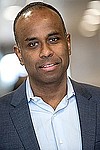
Dr. Bart Dietz
Sales Leadership
T: +31 10 4081949
E: bdietz@rsm.nl
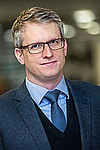
Prof. Steffen Giessner
Organisational Behaviour and Change
T: +31 10 4081572
E: sgiessner@rsm.nl
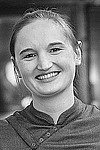
Dr. Inga Hoever
Team Leadership and Creativity
T: +31 10 4082736
E: ihoever@rsm.nl

Dr. Sofya Isaakyan
Leadership Development
T: +31 10 4081946
E: isaakyan@rsm.nl

Dr. Hannes Leroy
Authentic Leadership
T: +31 10 4082627
E: leroy@rsm.nl
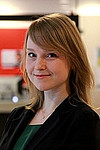
Dr. Julija Mell
Team Collaboration
T: +31 10 4082538
E: jmell@rsm.nl
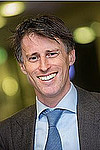
Prof. Taco Reus
Global Strategy
T: +31 10 4088937
E: treus@rsm.nl
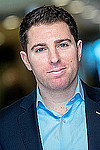
Dr. Meir Shemla
Team Leadership and Diversity
T: +31 10 4082537
E: shemla@rsm.nl

Prof. Daan Stam
Innovation Management
T: +31 10 4082007
E: dstam@rsm.nl

Pisitta Vongswasdi
PhD candidate in Leadership Development
T: +31 10 4082811
E: vongswasdi@rsm.nl

Dr. Maartje Schouten
Department of Organisation and Personnel Management
T: +31 10 7545872
E: meschouten@rsm.nl
Associates

Fabiola Gerpott
Professor of Leadership at WHU
T: +49 176 6461 2659
E: fabiola.gerpott@whu.edu

Prof. Niels Van Quaquebeke
Professor of Leadership and Organizational Behavior at Kühne Logistics University - KLU
T: +49 40 328707-241
www.the-klu.org/quaquebeke
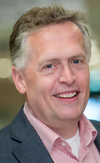
Wilfred Mijnhardt
Policy Director RSM - Academic leadership
E: wmijnhardt@rsm.nl
Join the debate
Are you interested in leadership and leadership development?
Find out more about our wide range of events, listed on our website to learn more about what makes an effective leader and how you can tap into your own leadership potential.
Perhaps you are already involved in leadership development in your company, or simply want to know how good leadership can help tackle the world’s wicked problems.
Whatever your motivation, join our conversation on leadership by registering for any of our upcoming events or connect with us by email.
If you have any questions, concerns or ideas, please contact us! We would love to hear from you.
Each year the Erasmus Centre for Leadership organises a number of events, both for the scientific and the broader community, often in collaboration with other partners. Events include research conferences for the world’s top leadership researchers to discuss the latest scientific discoveries, and more intimate networking events specifically to address current leadership challenges.
Understanding loneliness at work during COVID-19 and in the future
Join Prof. Steffen Giessner and PhD candidate Hodar Lam to discuss their research on how to best combat loneliness at work.
Many of us have now spent the last four months working from home and being isolated from friends, family, and colleagues. While the exact impacts are still being investigated, researchers at RSM are already thinking of solutions and preparing for the future.
Join Prof. Steffen Giessner and PhD candidate Hodar Lam for a digital session on 16 July at 14.00 CEST to discuss their research on how to best combat loneliness at work. They will discuss the background and approach of their research, and recommend ways for employees, managers, and organisations as a whole to feel less lonely now and in the future. The programme will include a question and answer session so we can delve deeper into the impact this is having on all of us.
Sign up for the session here.
New Directions in Leadership Research Conference (NDLR)
19-21 June 2019, North Carolina, USA
The NDLR is an annual research conference convened by RSM, Duke University, INSEAD and the Wharton School at the University of Pennsylvania. The location of the conference rotates among partner universities.
The 2019 NDLR conference will be 19-21 June at Duke University in North Carolina, USA. For more information please visit the conference website.
Leadership Conversations
10 May 2019, Rotterdam, the Netherlands
The Erasmus Center for Leadership (ECL) cordially invites you to join the next Leadership Conversation on Friday 10 May 2019 at Rotterdam School of Management, Erasmus University (RSM). The objective of this open forum is to connect academia, business and the larger RSM community around a common topic of interest: leadership development.
Within ECL we are exploring a number of promising topics and tools that will increase our understanding of successful leadership development and eventually allow us to scale-up our educational efforts. The aim of the Leadership Conversation is to deep-dive into a number of these topics together with interested stakeholders and benefit from your creativity and experience in helping us shape the different initiatives that we are currently exploring. At the same time, by joining the conversation, you will become a part of our leadership community and gain a unique look behind the scenes of our newly invigorated ECL.
Special conference on Leadership Development 2018
Becoming a more effective leader during the Leadership Challenge 2020/2021 in Norway
Updated: 19 October 2020
If you’re ready for a physical and perhaps emotionally testing challenge and want to improve your leadership skills, then this is an event to keep an eye on!
Imagine... completing challenges using all of your abilities – mental and physical – against a backdrop of raw nature, with a full backpack, and no mobile phone or internet. This will be completely outside of your comfort zone.
Due to Covid-19, the Leadership Challenge 2020 was postponed to 20 – 28 July 2021. If all goes as planned, it will take place in the Hardangervidda National Park in Norway. The event aims to develop and improve personal leadership capabilities, and student swill take part in the challenge alongside students from other graduate business schools. The environment is raw and has none of today’s high-tech distractions. Teams from top business schools such as Rice University, Cornell University, Rotterdam School of Management, Erasmus University, University of Exeter Business School, University of Michigan and University of Virginia will compete against each other.
This challenge is all about personal growth. Students will be navigating a route through the wilderness and will be pushed to the limits as they face challenges along it. We know that one of the most important lessons is learning when to step up to use skills as leader, and when to let others lead. It’s about connecting with others, about focus, and about delegation.
The Erasmus Centre for Leadership appoints experienced outdoor instructors and mentors to organise and facilitate leadership expeditions for students, managers and executives. They provide professional guidance and expert preparation, so you don’t have to be an outdoor expert to benefit from this Challenge.
19 sponsored places
What’s more, the Erasmus Centre for Leadership fully sponsors the participation of 19 master students from RSM. Selected students only need to pay for their own travel expenses to and from Bergen and Kinsarvik in Norway. Some equipment, like a sleeping bag, liner, sleeping pad and a backpack, can be borrowed from the outdoor company that helps to run the Challenge - on a first-come, first-served basis.
But, participants must be ready for a physical – and occasionally emotional – challenge. All of this takes place in untouched natural terrain with steep hills to climb up and down. The participating students need to carry a full backpack which could weigh as much as 20 per cent of their own body weight, so they need a basic level of fitness.
And participants need to be prepared to switch off from modern communications. There’s no mobile phone signal, no wi-fi or internet, and no home comforts. Thus, the participants must be prepared to live out of their comfort zone.
The selection for the Leadership Challenge 2020 was done during the Spring of 2020 and the criteria to be considered for selection were as follows:
- The applicant must be a student enrolled in one of RSM’s MSc programmes, registered and active during the academic year 2019-2020;
- The applicant must answer two questions about his/her motivation through our online video application platform from RIVS;
- The applicant must submit a curriculum vitae/resume;
- The applicant must have an I WILL statement which appears on RSM’s I Will website;
- The participant must finance his/her own travel to and from Bergen and Kinsarvik;
The Leadership Challenge committee selected a shortlist of applicants for a 30-minute interview. These interviews took place in the week of 30 March 2020.
If you have questions, please contact the Erasmus Centre for Leadership.
Testimonials
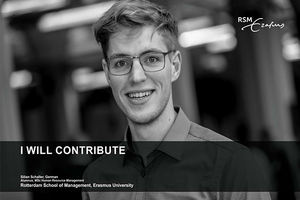
"The expedition simultaneously challenged me on a personal, social, and physical level, while providing the time and framework to reflect. With all this set in the context of the grand, humbling nature of Norway, this experience was among the most impactful experiences of my life, serving as the perfect inflection point of transitioning from university into my career."
Silian Schaller
RSM alumnus, Human Resource Management
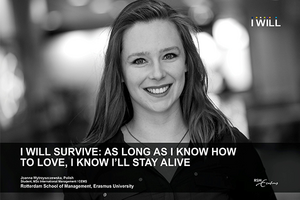
"Leadership Challenge expedition was remarkably the most humbling and at the same time building experience for me. It taught me how to better deal with uncertainty, put more trust in people around me and accept and appreciate help. If you're just ready to question yourself, you can get so much out of this programme.”
Joanna Wytrzyszczewska
RSM alumna, MSc International Management / CEMS
The Tutor Academy supports the hundreds of teaching assistants in RSM’s Business Administration and International Business Administration programmes. We help aspiring teaching assistants and teachers to find each other, but we also help with contracting and provide needed training.

“Connect the course and the students”
A teaching assistant (TA), or tutor, is the connection between the professor, the learning material and the students. Depending on the course, teaching assistants may be hired to teach workshops, coach students, aid professors with administrative tasks, and grade exams. Teaching assistants are key to engaging students and offering high-quality bachelor programmes.
“We help you find a job that will mark your career”
If you are a second-year or third-year bachelor student or a master student and interested in a job as a teaching assistant, please sign up via this job page to receive vacancies via email for which you are eligible. First-year bachelor students can apply for teaching assistant positions with a start date in their second-year bachelor and are welcome to sign up via this job page starting May 15th. When you find an interesting vacancy, you are more than welcome to apply. Signing up takes only a few minutes, is entirely without obligation, and you can deregister at any time via the Applicant Portal.
If you are looking for internships and non-TA jobs, we recommend visiting the excellent RSM Career Portal.
“We connect our talented students to your programme”
If you are a BA or IBA teacher looking for TAs, don’t hesitate to email us at tutoracademy@rsm.nl. You can tell us what type of students you are looking for and send us your recruitment pamphlet, or write one using our template. We can then contact students in our database for you, who may apply in response, allowing you to start selecting your preferred candidates.
Contact us at tutoracademy@rsm.nl.

